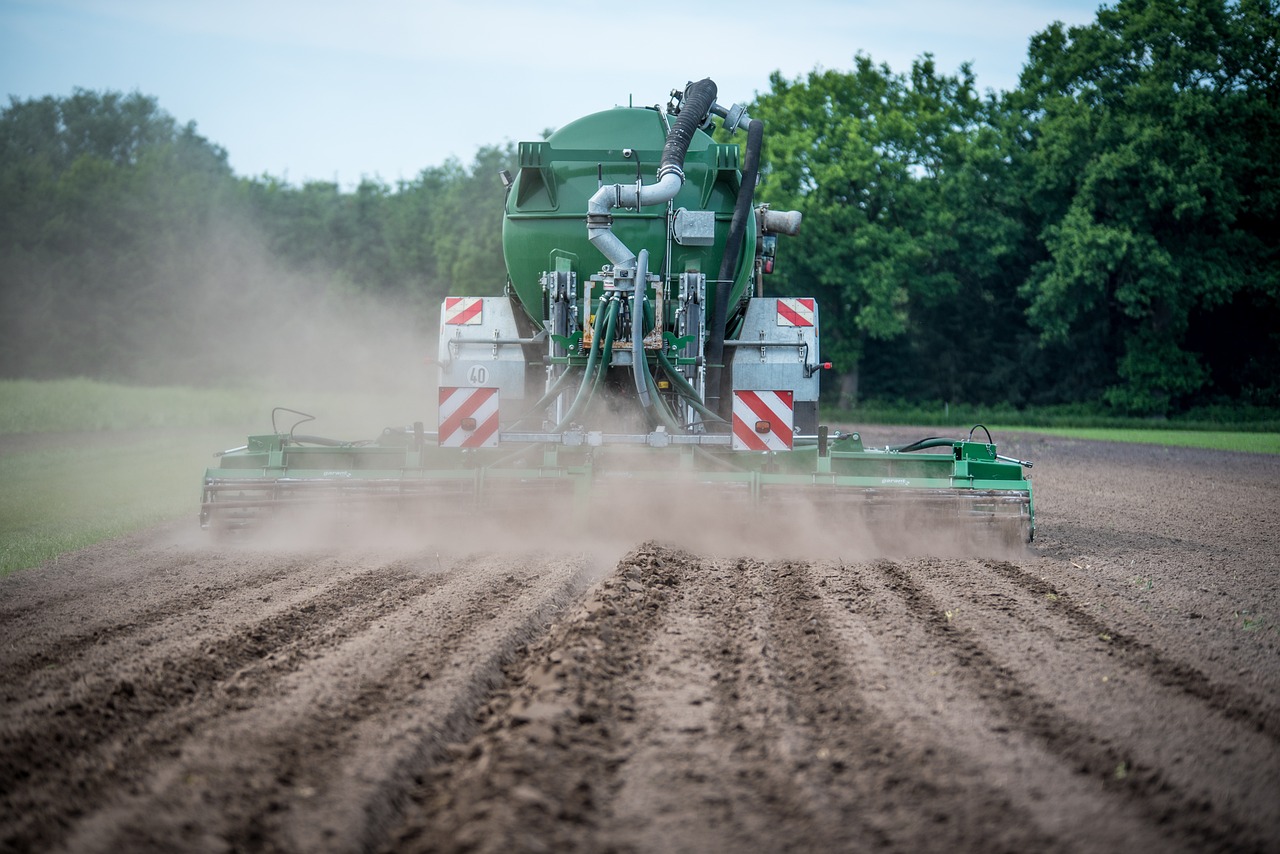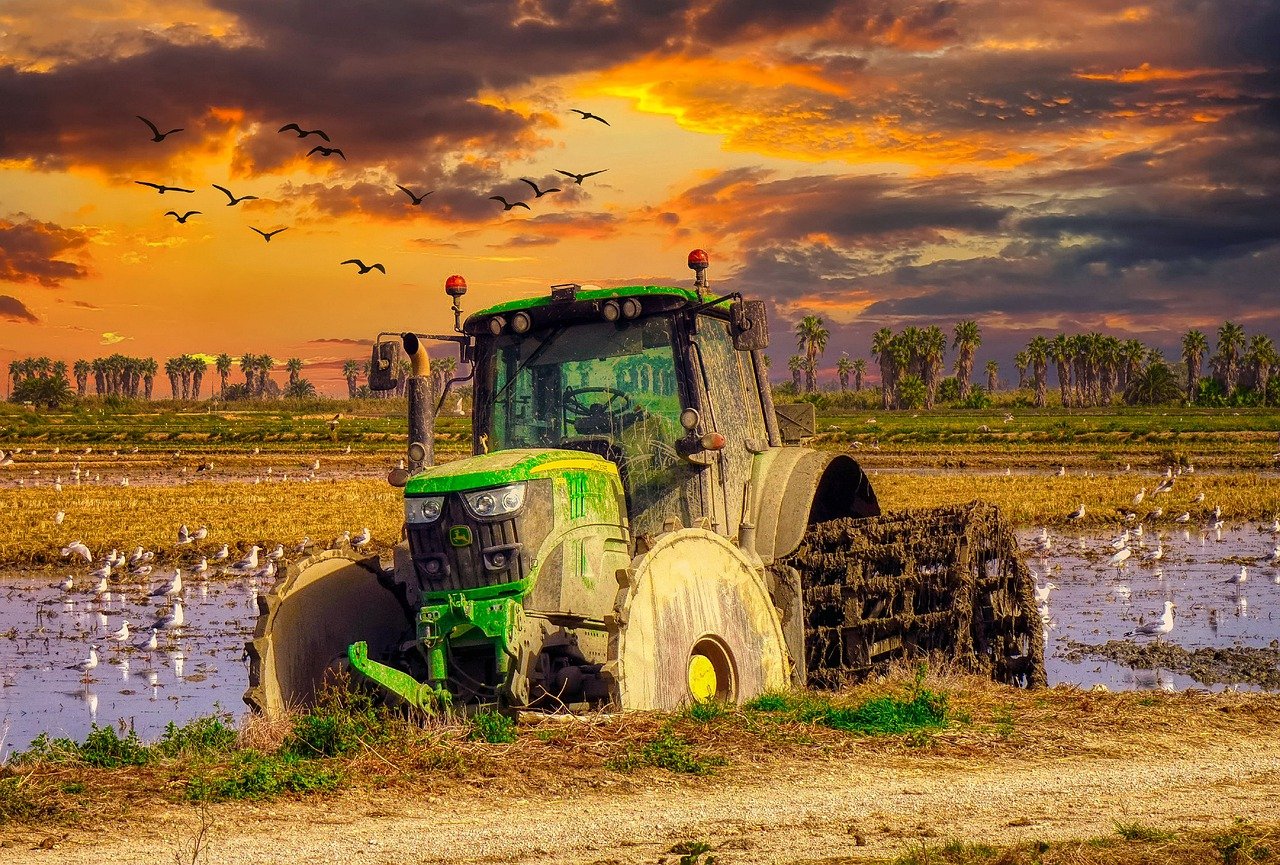Eco-Friendly Fertilizers - Are They Worth the Investment?
In today's world, where environmental concerns are at the forefront of many discussions, the question of whether to invest in eco-friendly fertilizers is more relevant than ever. As gardeners and farmers alike seek sustainable practices, the allure of natural fertilizers derived from organic materials is hard to resist. But are they really worth the investment? To answer that, we need to dive deep into the benefits and drawbacks of these alternatives compared to their conventional counterparts.
Eco-friendly fertilizers are made from natural sources, such as compost, manure, and bone meal, designed to improve soil health while minimizing environmental impact. Unlike traditional fertilizers, which are often loaded with synthetic chemicals, eco-friendly options aim to nourish the soil and promote a balanced ecosystem. This means healthier plants, richer soil, and a more sustainable approach to gardening and farming.
When considering the investment in eco-friendly fertilizers, it's essential to weigh the cost-effectiveness against their long-term benefits. While the initial price tag may be higher than traditional fertilizers, the potential for improved soil health, reduced chemical dependency, and enhanced crop yields can make them a wise choice in the long run. Think of it like investing in a high-quality pair of shoes; they may cost more upfront, but they’ll last longer and provide better support.
Moreover, the environmental benefits cannot be overlooked. Traditional fertilizers have been linked to serious issues such as water pollution and soil degradation. By opting for eco-friendly alternatives, not only are you making a choice that benefits your garden, but you're also contributing to a healthier planet. It’s a win-win situation!
So, are eco-friendly fertilizers worth the investment? The answer largely depends on your gardening or farming goals, your budget, and your commitment to sustainability. If you’re looking to cultivate a thriving garden while also being a steward of the environment, then eco-friendly fertilizers might just be the best investment you can make.
- What are eco-friendly fertilizers made from? Eco-friendly fertilizers are typically made from natural materials like compost, manure, bone meal, and other organic substances.
- Are eco-friendly fertilizers more expensive than traditional ones? Yes, they often have a higher upfront cost, but they can lead to savings in the long run through improved soil health and reduced chemical needs.
- Do eco-friendly fertilizers work as well as synthetic fertilizers? While they may not provide the same immediate results as synthetic options, they promote long-term soil health and plant vitality.
- How do I choose the right eco-friendly fertilizer for my garden? Conduct a soil test to understand your soil's nutrient needs and select a fertilizer that aligns with those requirements.

Understanding Eco-Friendly Fertilizers
When we talk about eco-friendly fertilizers, we're diving into a world where nature meets agriculture in a harmonious dance. Unlike their synthetic counterparts, which are often laden with chemicals, eco-friendly fertilizers are derived from natural sources. This means they are designed to enhance soil health while minimizing any potential harm to our environment. Imagine nurturing your garden with ingredients straight from nature's pantry—compost, manure, and even seaweed! These natural fertilizers not only feed your plants but also enrich the soil they grow in.
So, what makes eco-friendly fertilizers stand out? For starters, their composition is quite different from traditional fertilizers. While conventional fertilizers typically contain high concentrations of nitrogen, phosphorus, and potassium (the NPK trio), eco-friendly options often include a mix of organic matter, minerals, and beneficial microorganisms. This unique mix plays a crucial role in restoring and maintaining the natural balance of soil ecosystems. It's like giving your garden a multivitamin instead of just a quick energy shot!
Let’s break it down further. Eco-friendly fertilizers can be categorized into two main types:
- Organic Fertilizers: These are made from natural materials, such as plant or animal by-products. Think compost, bone meal, and fish emulsion. They release nutrients slowly, which means your plants can absorb them over time.
- Natural Mineral Fertilizers: These are mined from the earth and contain essential nutrients. Examples include rock phosphate and potassium sulfate. They often require less processing than synthetic fertilizers.
By opting for eco-friendly fertilizers, you’re not just making a choice for your garden; you’re also making a commitment to the planet. These fertilizers help in the regeneration of soil health, enhance biodiversity, and contribute to a more sustainable agricultural practice. Imagine a world where farms are lush, gardens thrive, and ecosystems flourish—this is the vision that eco-friendly fertilizers support.
In summary, understanding eco-friendly fertilizers means recognizing their natural origins and benefits. They serve as a bridge to healthier soil and plants, promoting a sustainable approach to gardening and farming. So, the next time you consider how to nourish your plants, think about the natural options available. Your garden, and the Earth, will thank you!

Benefits of Using Eco-Friendly Fertilizers
When it comes to gardening and farming, the choice of fertilizer can make all the difference. Eco-friendly fertilizers are gaining popularity, and for good reason! Not only do they provide a sustainable option for nurturing plants, but they also come with a plethora of benefits that can transform your gardening experience. So, what exactly makes these fertilizers a worthwhile investment? Let's dive into the advantages that eco-friendly fertilizers bring to the table.
First and foremost, one of the standout benefits of using eco-friendly fertilizers is the improvement in soil quality. Unlike conventional fertilizers that can strip the soil of its natural nutrients over time, eco-friendly options are rich in organic matter. This organic content enhances the soil structure, allowing it to retain moisture and nutrients more effectively. Imagine your soil as a sponge; the more porous and rich it is, the better it can soak up and hold onto essential elements that your plants crave.
Moreover, eco-friendly fertilizers help to create a thriving ecosystem within the soil. They promote beneficial microbial activity, which is crucial for the nutrient cycling process. Healthy soil is teeming with microorganisms that break down organic materials, releasing nutrients that plants can absorb. By using these natural fertilizers, you're essentially inviting a whole army of microscopic helpers to work for you, ensuring your plants have everything they need to flourish.
Speaking of microorganisms, did you know that healthy microbial life is vital for nutrient cycling? Eco-friendly fertilizers encourage the growth of these beneficial microorganisms, leading to healthier and more robust plants. When the microbial community in the soil is diverse and active, it can improve nutrient availability and even help plants resist diseases. It's like having a protective shield around your garden, ensuring that your plants stay strong and vibrant.
Another fantastic benefit is the ability of eco-friendly fertilizers to enhance soil structure and control erosion. Healthy soil structure is essential for preventing erosion, which can wash away precious topsoil and nutrients. By incorporating organic materials into the soil, these fertilizers help bind soil particles together, creating a more stable environment for plant roots. This not only promotes better growth but also contributes to water retention, reducing the need for frequent watering. In essence, you're investing in a sustainable future for your garden.
Now, let's talk about cost-effectiveness. While some might argue that eco-friendly fertilizers come with a higher initial price tag, it's important to consider the long-term financial benefits. By improving soil health and increasing crop yields, these fertilizers can lead to reduced need for chemical inputs over time. Think of it as a wise investment; you're spending a bit more upfront, but you're reaping the rewards in the form of healthier plants and potentially lower costs in the long run.
In summary, the benefits of using eco-friendly fertilizers are numerous and compelling. From enhancing soil quality and microbial activity to promoting erosion control and long-term cost-effectiveness, these natural options offer a sustainable choice for gardeners and farmers alike. So, the next time you're contemplating what to feed your plants, consider going green with eco-friendly fertilizers. Your garden—and the planet—will thank you!
Here are some common questions that people often have regarding eco-friendly fertilizers:
- What are eco-friendly fertilizers made of? Eco-friendly fertilizers are typically derived from natural sources like compost, manure, and plant materials.
- Are eco-friendly fertilizers as effective as traditional ones? Yes, they can be just as effective, if not more so, in improving soil health and promoting plant growth over time.
- How do I know which eco-friendly fertilizer to use? Conducting a soil test can help you determine the specific nutrients your soil needs, guiding you to the right product.
- Can I use eco-friendly fertilizers on all types of plants? Most eco-friendly fertilizers are versatile and can be used on a wide range of plants, but it's always best to check the product label.

Improved Soil Health
When it comes to gardening or farming, the foundation of success lies in the soil. It's like the bedrock of a thriving ecosystem, and eco-friendly fertilizers play a pivotal role in enhancing that foundation. Unlike their synthetic counterparts, which can strip the soil of its natural nutrients, eco-friendly fertilizers are derived from organic materials that work harmoniously with the earth. They not only provide essential nutrients but also improve the soil's structure and health over time.
One of the most remarkable benefits of using eco-friendly fertilizers is their ability to enhance microbial activity in the soil. Microorganisms, such as bacteria and fungi, are the unsung heroes of soil health. They break down organic matter, making nutrients available to plants while also improving soil structure. When you use eco-friendly fertilizers, you're essentially inviting these beneficial microbes to thrive. This leads to a vibrant ecosystem that supports plant growth and resilience.
Moreover, improved soil health means better nutrient retention. Think of it like a sponge soaking up water; healthy soil can retain moisture and nutrients much more effectively than depleted soil. This not only reduces the need for frequent watering but also ensures that plants have access to the nutrients they require throughout their growth cycle. In turn, this can lead to stronger, more vibrant plants that are less susceptible to pests and diseases.
Another significant aspect of improved soil health is its impact on erosion control. Healthy soil has a well-structured composition that binds together, preventing erosion caused by wind and water. When you implement eco-friendly fertilizers, you’re not just boosting your plants; you’re also contributing to the overall stability of the environment. By maintaining soil integrity, you help to promote a sustainable ecosystem that can withstand the tests of time.
In summary, the use of eco-friendly fertilizers can lead to:
- Enhanced microbial activity, promoting nutrient cycling.
- Improved nutrient retention, reducing the need for additional watering.
- Stronger soil structure, which helps prevent erosion.
Investing in eco-friendly fertilizers is akin to investing in the future of your garden or farm. The benefits of improved soil health are profound and far-reaching, affecting not just the immediate plants but also the broader ecosystem. So, why not give your soil the love it deserves and watch it flourish?
Q: What are eco-friendly fertilizers made from?
A: Eco-friendly fertilizers are typically made from natural sources such as compost, manure, bone meal, and other organic materials. They aim to provide essential nutrients to plants while enhancing soil health.
Q: How do eco-friendly fertilizers improve soil health?
A: They enhance microbial activity, improve nutrient retention, and contribute to better soil structure, which helps prevent erosion.
Q: Are eco-friendly fertilizers more expensive than traditional fertilizers?
A: While the upfront cost may be higher, eco-friendly fertilizers can lead to long-term savings through improved crop yields and reduced reliance on chemical inputs.
Q: Can I switch to eco-friendly fertilizers immediately?
A: Yes, you can switch to eco-friendly fertilizers at any time. However, it's advisable to conduct a soil test to determine the specific needs of your soil and plants.

Enhanced Microbial Activity
When we talk about , we're diving into one of the most fascinating aspects of eco-friendly fertilizers. You see, the soil is not just dirt; it's a bustling metropolis of microorganisms. These tiny creatures, which include bacteria, fungi, and protozoa, play an essential role in breaking down organic matter and cycling nutrients. When you use eco-friendly fertilizers, you're essentially throwing a party for these beneficial microbes!
Unlike traditional fertilizers, which can sometimes be harsh and detrimental to soil life, eco-friendly options provide a nurturing environment. They are rich in organic materials that serve as food for these microorganisms. Think of it as offering a buffet to your soil's inhabitants. This buffet helps to:
- Boost Nutrient Cycling: Microbes break down organic matter, making nutrients more accessible to plants.
- Improve Soil Structure: Healthy microbial activity creates aggregates in the soil, enhancing aeration and water retention.
- Enhance Disease Resistance: A diverse microbial community can outcompete pathogens, leading to healthier plants.
Moreover, the presence of these microorganisms can lead to a phenomenon known as mycorrhizal association. This is where fungi form symbiotic relationships with plant roots, extending their reach into the soil to access water and nutrients that would otherwise be out of reach. It's like giving your plants a set of supercharged roots!
In essence, by choosing eco-friendly fertilizers, you’re not just feeding your plants; you’re fostering a thriving ecosystem beneath your feet. The result? Healthier plants that are more resilient to pests and diseases, ultimately leading to a more sustainable gardening or farming practice. So, if you're looking to cultivate a vibrant garden or farm, consider the power of microbial activity and how eco-friendly fertilizers can enhance it!

Soil Structure and Erosion Control
When it comes to maintaining the health of our soil, one of the most critical aspects is its structure. Healthy soil structure not only supports plant growth but also plays a vital role in preventing erosion. Erosion can be a sneaky thief, gradually washing away the topsoil that is essential for growing crops and sustaining gardens. Fortunately, eco-friendly fertilizers are here to help combat this issue. By using organic materials, these fertilizers enhance the soil's structure, making it more resilient against the forces of nature.
So, how do eco-friendly fertilizers achieve this? It all starts with the organic matter they contain. When you add compost, manure, or other natural amendments to your soil, you're not just feeding the plants; you're also improving the soil's ability to hold together. Think of it like adding glue to a jigsaw puzzle. The more pieces you have, the more stable the puzzle becomes. In this case, the organic matter acts as that glue, binding soil particles together and creating a more stable structure.
Moreover, a well-structured soil has better water retention capabilities. This means that during dry spells, your plants will have access to moisture stored in the soil, reducing the need for frequent watering. On the flip side, during heavy rains, well-structured soil can absorb and retain excess water, preventing runoff that can lead to erosion. In essence, eco-friendly fertilizers help create a balanced ecosystem where the soil can thrive, even under challenging conditions.
To illustrate the effectiveness of eco-friendly fertilizers in maintaining soil structure and preventing erosion, consider the following table:
| Aspect | Traditional Fertilizers | Eco-Friendly Fertilizers |
|---|---|---|
| Soil Structure | Can degrade soil structure over time | Improves soil structure and stability |
| Water Retention | Poor water retention, leading to runoff | Enhances water retention, reducing erosion |
| Microbial Activity | May harm beneficial microorganisms | Promotes healthy microbial activity |
In conclusion, investing in eco-friendly fertilizers is not just about nurturing your plants; it’s about protecting the soil that sustains them. By enhancing soil structure and controlling erosion, these fertilizers pave the way for a more sustainable gardening and farming practice. Just imagine a world where our soils are rich, resilient, and capable of supporting life for generations to come. Isn’t that a vision worth striving for?
- What are eco-friendly fertilizers made of? Eco-friendly fertilizers are typically derived from natural sources such as compost, manure, and other organic materials.
- How do eco-friendly fertilizers improve soil health? They enhance soil structure, increase microbial activity, and improve nutrient retention, all of which contribute to healthier plants.
- Are eco-friendly fertilizers more expensive than traditional fertilizers? While they may have higher upfront costs, the long-term benefits, such as improved crop yields and reduced chemical use, can make them more cost-effective.
- Can I use eco-friendly fertilizers in my garden? Absolutely! They are suitable for home gardens, farms, and even potted plants.

Cost-Effectiveness of Eco-Friendly Fertilizers
When it comes to gardening or farming, the initial investment in eco-friendly fertilizers can sometimes raise eyebrows. Many people wonder if these natural alternatives are really worth the extra bucks. However, looking beyond the sticker price reveals a different story. Eco-friendly fertilizers not only contribute to a healthier environment but also yield significant long-term savings that can outweigh their upfront costs. It's like buying a quality pair of shoes; you might pay more initially, but they last longer and save you money in the long run.
One of the key factors in determining the cost-effectiveness of eco-friendly fertilizers is their impact on crop yields. Studies have shown that organic fertilizers can lead to higher productivity over time, especially when used in conjunction with sustainable farming practices. This means that while you may spend a little more at the start, the increased yields will ultimately result in better returns on your investment. Think of it as planting a seed today that grows into a fruitful tree tomorrow!
Additionally, using eco-friendly fertilizers can significantly reduce the need for chemical inputs. Traditional fertilizers often require multiple applications throughout the growing season, which can add up quickly. In contrast, many organic options release nutrients slowly, providing a steady supply that can lead to lower overall costs in the long term. By minimizing the frequency of applications, you not only save money but also reduce the environmental impact of your farming or gardening practices.
To illustrate this point, consider the following comparison of costs associated with traditional versus eco-friendly fertilizers:
| Type of Fertilizer | Initial Cost per Acre | Long-term Cost (over 5 years) | Potential Yield Increase |
|---|---|---|---|
| Traditional Fertilizer | $150 | $1,000 | 10% increase |
| Eco-Friendly Fertilizer | $200 | $800 | 15% increase |
As you can see from the table, while the initial cost of eco-friendly fertilizers is higher, the long-term savings and increased yield make them a wiser choice. This is especially true when you factor in the environmental benefits, such as improved soil health and reduced chemical runoff.
In conclusion, investing in eco-friendly fertilizers is not just about spending more upfront; it's about embracing a sustainable future that pays off in multiple ways. By choosing these natural alternatives, you are not only nurturing your plants but also contributing to a healthier planet. So the next time you’re at the garden center, remember: sometimes, the best things in life are worth a little extra investment!

Environmental Impact of Traditional Fertilizers
Traditional fertilizers, while effective for boosting crop yields, come with a hefty environmental price tag. These chemical concoctions, often laden with synthetic compounds, can lead to a cascade of negative effects on our ecosystems. Have you ever wondered how something so beneficial for plants can simultaneously wreak havoc on our water systems and soil health? Let’s dive into the murky waters of this issue.
One of the primary concerns with traditional fertilizers is their contribution to water pollution. When it rains, the excess nutrients from these fertilizers can wash away into nearby rivers, lakes, and streams. This phenomenon, known as nutrient runoff, can lead to algal blooms, which are not just unsightly but also detrimental to aquatic life. Algae consume oxygen in the water, creating dead zones where fish and other organisms can’t survive. In fact, according to the Environmental Protection Agency (EPA), nutrient pollution is one of the leading causes of water quality degradation in the United States.
Moreover, the long-term use of synthetic fertilizers can lead to soil degradation. Think of soil as a living organism; it needs a balanced diet to thrive. Continuous application of chemicals can strip the soil of its natural nutrients and microbial life. This degradation can result in reduced soil fertility, making it harder for plants to grow and thrive. Over time, farmers may find themselves in a vicious cycle where they need to apply even more fertilizers to achieve the same results, further exacerbating the problem.
Here’s a quick look at some of the environmental impacts of traditional fertilizers:
| Impact | Description |
|---|---|
| Water Pollution | Nutrient runoff leads to algal blooms and dead zones in aquatic ecosystems. |
| Soil Degradation | Continuous use of synthetic fertilizers depletes soil nutrients and microbial life. |
| Air Pollution | Volatilization of fertilizers can release harmful gases into the atmosphere. |
In addition to these issues, traditional fertilizers can also contribute to air pollution. When fertilizers are applied, some of their components can evaporate and release ammonia and other harmful gases into the atmosphere. These emissions can lead to respiratory problems in humans and contribute to the formation of fine particulate matter, which poses significant health risks.
So, what’s the takeaway? While traditional fertilizers have their place in agriculture, it’s crucial to recognize their environmental impact. As we strive for sustainability, many farmers and gardeners are now turning to eco-friendly alternatives that offer a more balanced approach to nurturing plants without compromising our planet’s health.
- What are the main differences between traditional and eco-friendly fertilizers?
Traditional fertilizers are synthetic and can harm the environment, while eco-friendly fertilizers are derived from natural sources and promote soil health. - Can eco-friendly fertilizers provide the same results as traditional ones?
Yes, they can be just as effective when used correctly, often leading to healthier soil and plants over time. - How can I reduce the impact of fertilizers on the environment?
Consider using eco-friendly options, applying fertilizers at the right time, and following soil testing recommendations.

Water Pollution Issues
When we think about fertilizers, our minds often jump to lush green lawns and bountiful gardens. However, lurking beneath this idyllic image is a troubling reality: traditional fertilizers can significantly contribute to water pollution. Have you ever noticed how a heavy rain can wash away the vibrant colors of your garden, only to see murky water running down the street? That water often carries with it an excess of nutrients, primarily nitrogen and phosphorus, from synthetic fertilizers. This runoff can lead to severe environmental consequences.
One of the primary culprits behind water pollution is nutrient runoff, which occurs when rainwater washes away fertilizers applied to fields and gardens. This runoff finds its way into rivers, lakes, and oceans, causing a phenomenon known as eutrophication. This process leads to excessive growth of algae, often referred to as algal blooms, which can deplete oxygen levels in the water, harming aquatic life. Imagine a vibrant underwater ecosystem turning into a barren wasteland, all because of a few careless applications of fertilizer!
In addition to harming aquatic ecosystems, the presence of excess nutrients in our water bodies can also lead to the contamination of drinking water supplies. High levels of nitrates in drinking water can pose health risks, particularly for infants and pregnant women. It's a chilling thought, isn't it? What seems like a harmless act of fertilizing your garden can have far-reaching implications for public health.
To put this into perspective, consider the following table that illustrates the impact of traditional fertilizers on water quality:
| Impact | Traditional Fertilizers | Eco-Friendly Fertilizers |
|---|---|---|
| Nutrient Runoff | High | Low |
| Algal Blooms | Common | Rare |
| Water Contamination | Possible | Minimal |
As you can see, the contrast is stark. While traditional fertilizers may provide quick results, the long-term consequences can be devastating. Eco-friendly fertilizers, on the other hand, not only reduce the risk of nutrient runoff but also contribute to a healthier ecosystem. By choosing organic options, we can help protect our water bodies and ensure that our gardens thrive without compromising the environment.
In conclusion, addressing water pollution issues requires a collective effort. As gardeners, farmers, and consumers, we have the power to make informed choices that prioritize sustainability. So, the next time you reach for that bag of fertilizer, think twice about the potential impact on our precious water resources. Wouldn't it be wonderful to cultivate a garden that nourishes not just our plants but also our planet?
- What are eco-friendly fertilizers? Eco-friendly fertilizers are derived from natural sources and aim to enhance soil health while minimizing environmental harm.
- How do traditional fertilizers contribute to water pollution? Traditional fertilizers can lead to nutrient runoff, which causes algal blooms and depletes oxygen in water bodies, harming aquatic life.
- Are eco-friendly fertilizers more expensive? While they may have higher upfront costs, eco-friendly fertilizers can lead to long-term savings through improved soil health and reduced chemical needs.
- How can I choose the right eco-friendly fertilizer? Conducting a soil test can help determine your soil's needs and guide you in selecting the appropriate eco-friendly fertilizer.

Soil Degradation Concerns
Soil degradation is a pressing issue that often flies under the radar, yet it has profound implications for agriculture and the environment. When we think about farming, we usually envision lush fields and bountiful harvests, but beneath the surface lies a hidden crisis. The continuous use of synthetic fertilizers is a significant contributor to this degradation, leading to a decline in soil health and fertility over time. Imagine a once-vibrant garden slowly turning into a barren landscape; that's the reality many farmers face when they rely heavily on chemical inputs.
One of the primary concerns with traditional fertilizers is their impact on soil structure. Over time, these synthetic products can disrupt the natural balance of nutrients and microorganisms, leading to a decline in soil quality. Healthy soil is akin to a thriving ecosystem, bustling with life and diversity. However, when we inundate it with chemicals, we essentially strip it of its vitality. The soil becomes compacted, reducing its ability to retain moisture and nutrients, which are essential for plant growth.
Furthermore, the reliance on synthetic fertilizers often leads to nutrient imbalances. While these fertilizers provide a quick fix to nutrient deficiencies, they can create a vicious cycle. For instance, excessive nitrogen application can lead to a depletion of other vital nutrients, such as potassium and phosphorus. This imbalance not only affects crop yields but also compromises the soil's long-term health, making it less resilient to pests and diseases.
Another alarming consequence of soil degradation is the increased susceptibility to erosion. Healthy soil acts as a protective barrier against wind and water erosion, but when its structure is compromised, it becomes vulnerable. Erosion not only strips away the nutrient-rich topsoil but also contributes to sedimentation in nearby water bodies, leading to further environmental issues. According to the Food and Agriculture Organization (FAO), about 33% of the world's soils are degraded, which is a staggering statistic that highlights the urgency of adopting sustainable practices.
To combat these soil degradation concerns, it is essential to embrace eco-friendly fertilizers that restore the natural balance of nutrients and microorganisms. These organic alternatives not only improve soil structure but also enhance its ability to retain moisture, making it more resilient against erosion. The transition may require a shift in mindset and practices, but the long-term benefits far outweigh the initial challenges. By prioritizing soil health, we are investing in a sustainable future for agriculture, ensuring that our lands remain productive for generations to come.
- What are eco-friendly fertilizers? Eco-friendly fertilizers are derived from natural sources and designed to improve soil health while minimizing environmental impact.
- How do traditional fertilizers contribute to soil degradation? Traditional fertilizers can disrupt soil structure, lead to nutrient imbalances, and increase erosion, ultimately degrading soil quality over time.
- Can eco-friendly fertilizers improve soil health? Yes, eco-friendly fertilizers enhance microbial activity, improve soil structure, and promote nutrient retention, leading to healthier soil.
- Are eco-friendly fertilizers cost-effective? While they may have higher upfront costs, eco-friendly fertilizers can lead to long-term savings through improved crop yields and reduced need for chemical inputs.

Choosing the Right Eco-Friendly Fertilizer
When it comes to selecting the right eco-friendly fertilizer, it can feel a bit overwhelming, especially with so many options available on the market. But fear not! Finding the perfect match for your garden or farm is more about understanding your soil and plants than it is about sifting through endless product labels. First and foremost, you'll want to consider conducting a soil test. This simple yet effective step can reveal the nutrient levels and pH balance of your soil, guiding you towards the specific amendments needed. Think of it like a health check-up for your garden; knowing what’s lacking allows you to provide exactly what’s needed for optimal growth.
Once you have your soil test results, you can start matching them with the right eco-friendly fertilizers. There are various types available, each with unique benefits:
- Compost: This is a fantastic all-rounder that enriches soil with nutrients and improves structure.
- Manure: Animal manure can be a powerful fertilizer, but be cautious about the source to avoid pathogens.
- Bone Meal: Rich in phosphorus, this is excellent for root development and flowering plants.
- Fish Emulsion: A quick-release fertilizer that provides a balanced nutrient profile, perfect for leafy greens.
In addition to understanding the types of fertilizers, consider the application method as well. You can either apply fertilizers directly to the soil or use them as foliar feeds, where nutrients are absorbed through the leaves. The choice depends on the specific needs of your plants and the type of fertilizer you choose. For instance, if your soil is already rich in organic matter, a light foliar feed might be all you need to give your plants a little boost.
Another important factor is timing. Just like you wouldn't want to eat a heavy meal right before a race, plants also have their own schedules when it comes to nutrient uptake. Applying fertilizers at the right time—such as during the growing season when plants are actively taking up nutrients—can make a significant difference in effectiveness. Pay attention to the growth stages of your plants and align your fertilizer applications accordingly.
Finally, keep in mind that using eco-friendly fertilizers isn't just about the product itself, but also about how you manage your overall gardening practices. Incorporating crop rotation, cover crops, and maintaining a diverse planting scheme can enhance the effectiveness of your fertilizers and lead to healthier soil in the long run. It’s like a symphony; when all the instruments play together harmoniously, the result is a beautiful garden that thrives sustainably.
- What is the best eco-friendly fertilizer for vegetables?
Compost and well-rotted manure are excellent choices, providing a balanced nutrient profile while improving soil health. - How often should I apply eco-friendly fertilizers?
It depends on the type of fertilizer and the needs of your plants, but generally, applying every 4-6 weeks during the growing season works well. - Can I make my own eco-friendly fertilizer?
Absolutely! Homemade compost or liquid fertilizers from kitchen scraps can be very effective and are easy to produce. - Are eco-friendly fertilizers more expensive than traditional ones?
While the upfront cost may be higher, the long-term benefits and improved soil health can lead to cost savings over time.
Frequently Asked Questions
- What are eco-friendly fertilizers?
Eco-friendly fertilizers are natural products derived from organic sources that aim to improve soil health without harming the environment. Unlike traditional fertilizers, they focus on enhancing the soil's nutrient content and microbial activity.
- How do eco-friendly fertilizers benefit soil health?
These fertilizers improve soil structure, increase nutrient retention, and promote beneficial microbial life. This leads to healthier plants and a more resilient ecosystem, making your garden thrive in a sustainable way.
- Are eco-friendly fertilizers cost-effective?
While they may have a higher initial cost, eco-friendly fertilizers can save you money in the long run. They often lead to improved crop yields and reduce the need for additional chemical inputs, making them a smart investment for the future.
- What environmental issues are caused by traditional fertilizers?
Conventional fertilizers can lead to significant water pollution due to nutrient runoff, which harms aquatic ecosystems. They also contribute to soil degradation over time, making sustainable practices essential for preserving soil quality.
- How can I choose the right eco-friendly fertilizer for my garden?
Start by conducting a soil test to understand its nutrient needs. Then, select a fertilizer that aligns with those requirements and the specific plants you are growing. This ensures that your garden receives the right balance of nutrients for optimal growth.
- Can eco-friendly fertilizers help with erosion control?
Yes! Eco-friendly fertilizers improve soil structure, which helps prevent erosion and promotes better water retention. This is vital for maintaining healthy soil and sustaining plant life.
- Do eco-friendly fertilizers really enhance microbial activity?
Absolutely! These fertilizers are designed to support beneficial microorganisms in the soil, which play a crucial role in nutrient cycling and overall soil health. More microbial activity means healthier plants!



















